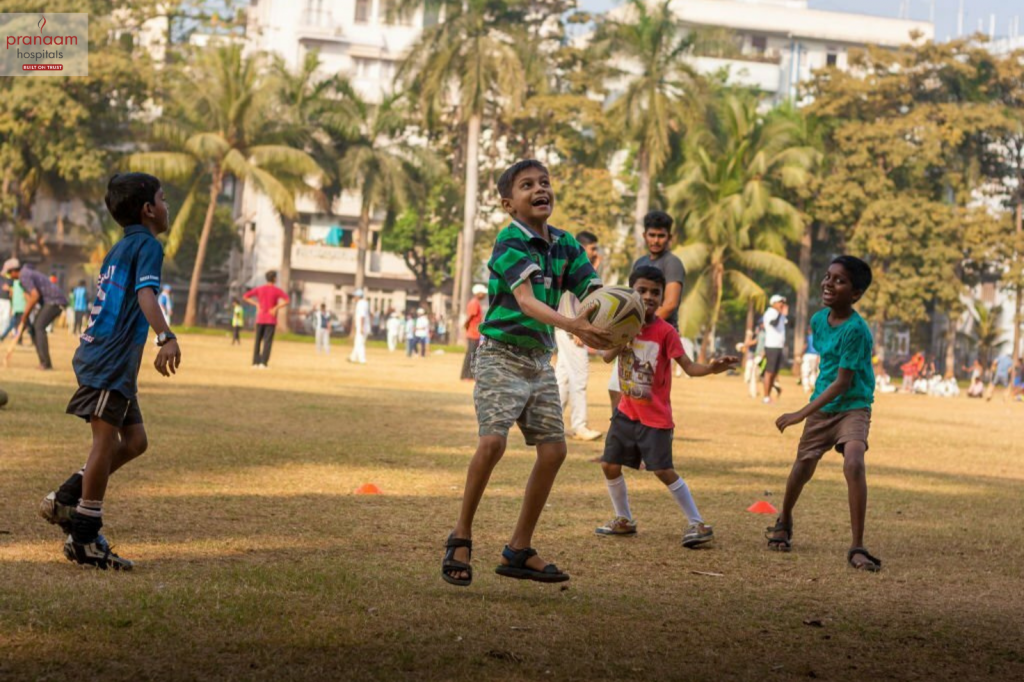Playing sports can be very beneficial to children’s general growth and wellbeing. The following are some significant ways that sports aid in children’s development and growth:
Physical Health: Regular physical activity is essential for maintaining good health.Children who play sports maintain a healthy weight, strengthen their bones and muscles, and increase their cardiovascular fitness.
Motor Skills: Playing sports helps children build up their motor skills, which include flexibility, balance, and coordination.These abilities are crucial for general physical competency in addition to athletic performance.
Social Skills: Playing team sports gives kids the chance to socialise, learn cooperation, and engage with their peers. They learn how to collaborate, communicate clearly, and settle disputes by working as a team. These abilities are beneficial in both private and business contexts.
Discipline and Time Management: Involvement in sports requires commitment and regular practice. Children learn the importance of discipline, time management, and setting and achieving goals. These qualities can translate into success in academics and other aspects of life.
Emotional Well-Being: By giving kids a way to release tension, worry, and extra energy, sports can improve their emotional well-being. Playing sports helps children build up their motor skills, which include flexibility, balance, and coordination.
Healthy Lifestyle Habits: Involvement in sports introduces children to a healthy and active lifestyle. It prevents chronic illnesses related to a lack of exercise and promotes regular physical activity, a habit that can last until adulthood.
Resilience and Perseverance: Sports often involve challenges and setbacks.Children gain resilience, learn how to deal with failure, and recover from setbacks through these experiences. These abilities are essential for overcoming challenges in life.
Academic Performance: Physical exercise and academic performance appear to be positively correlated, according to research. Regular physical activity increases mental sharpness, concentration, and memory retention—all of which are important to academic success.
Healthy Competition: Sports teach children how to compete in a healthy and respectful manner. They learn to win graciously, lose with dignity, and understand the importance of fair play.
Lifelong Enjoyment: Engaging in sports at a young age can foster a love for physical activity that lasts a lifetime. Whether it’s through organised sports or recreational activities, the enjoyment of movement can contribute to a lifelong commitment to health and fitness.
Also Read: How to know Children Mental Health?
Follow us on:Facebook


